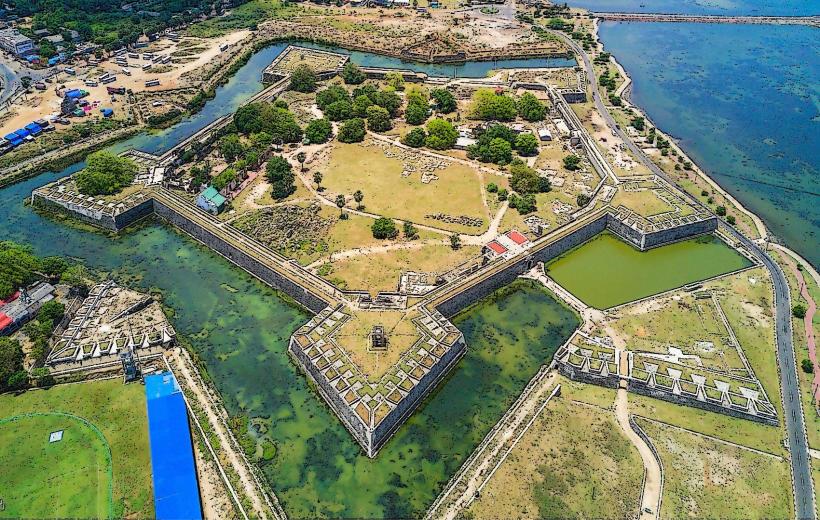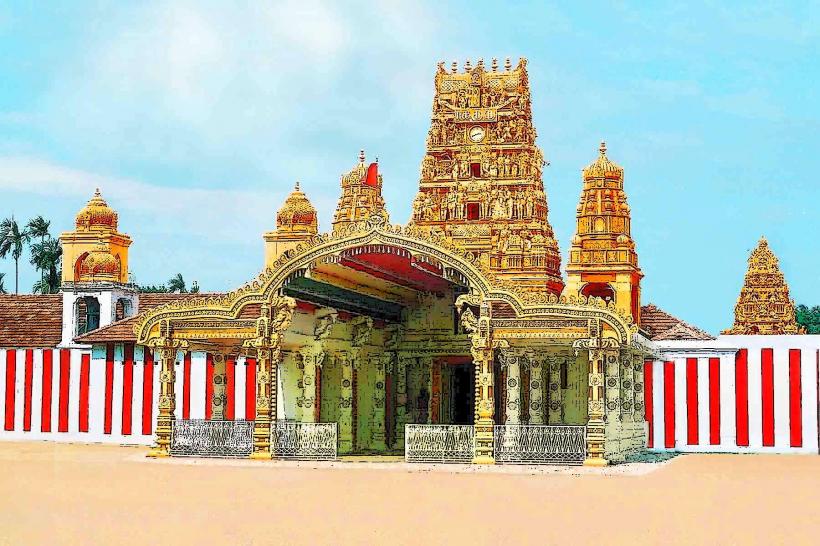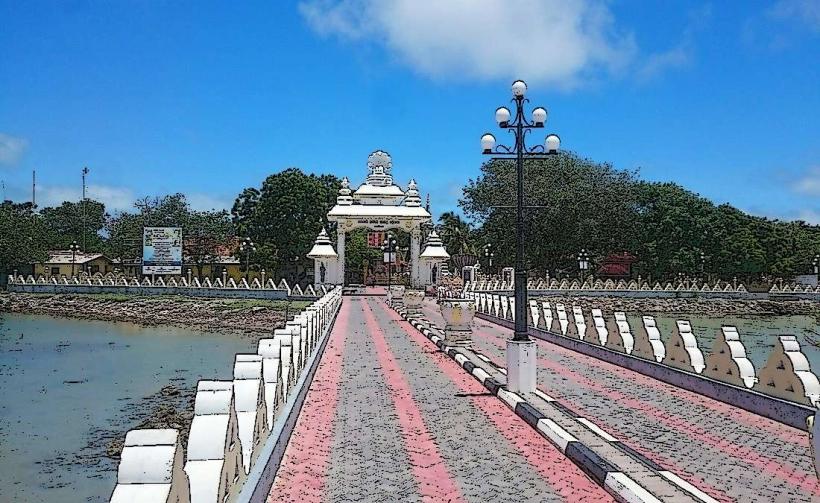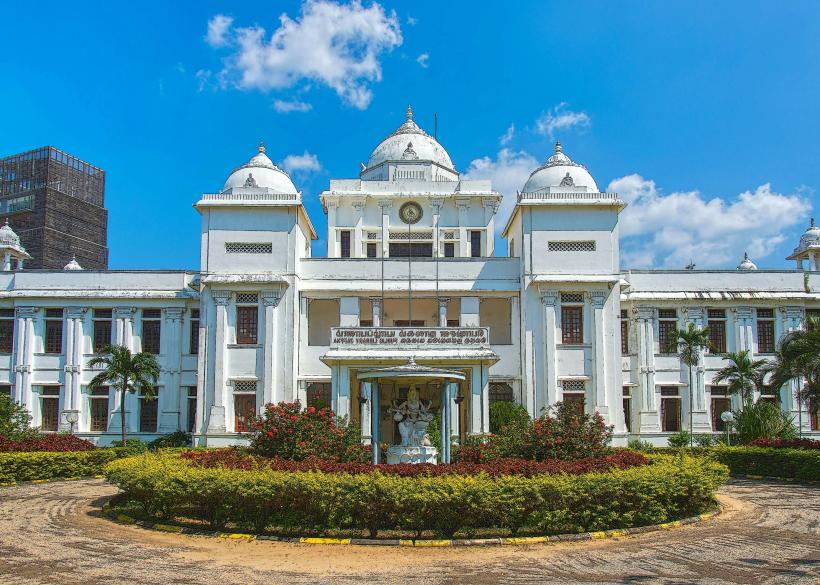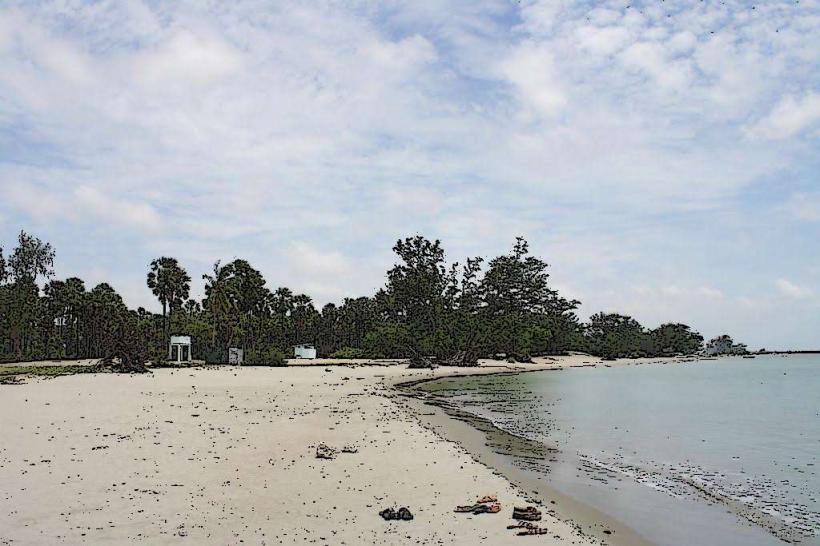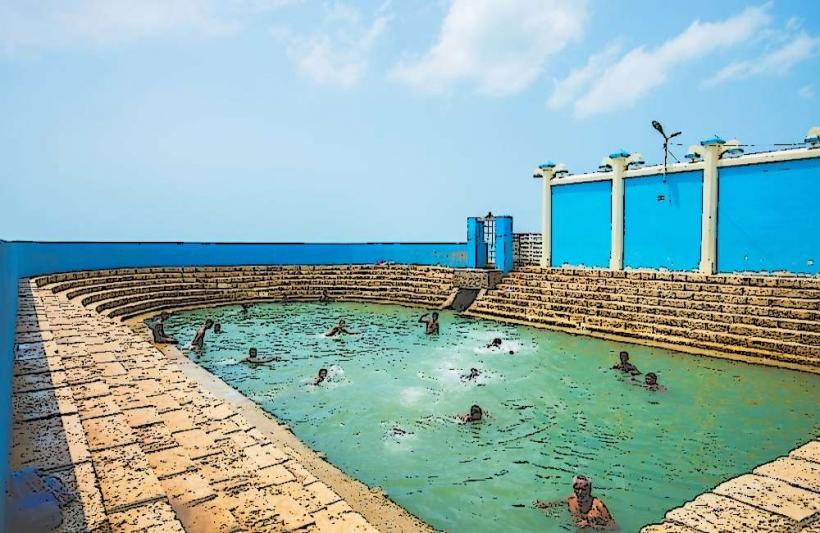Information
Landmark: Delft IslandCity: Jaffna
Country: Sri Lanka
Continent: Asia
Delft Island is a picturesque and historically significant island located in the Jaffna District of northern Sri Lanka. Situated in the Palk Strait, it is part of the Northern Province and lies approximately 30 kilometers (18.6 miles) off the coast of Jaffna Peninsula. Known for its unique blend of natural beauty, historical ruins, and wildlife, Delft Island is an off-the-beaten-path destination for travelers seeking to experience a more tranquil and untouched part of Sri Lanka.
1. Overview
- Location: Delft Island is located in the Palk Strait, which separates Sri Lanka from India. It is accessible by boat from the Jaffna Peninsula and can also be reached via ferry services.
- Area: The island covers an area of about 50 square kilometers.
- Significance: Delft Island is famous for its historical ruins, including remnants of colonial fortifications, as well as its wildlife, particularly the wild horses that roam freely on the island. It has a rich cultural history, having been influenced by multiple civilizations, including the Portuguese, Dutch, and British.
2. Natural Beauty and Wildlife
- Landscape: Delft Island features a variety of natural landscapes, from dry scrubland and salt marshes to coastal areas with pristine beaches. The island's desert-like terrain is characterized by thorny bushes, small lagoons, and fossilized coral beds, giving it a stark yet beautiful landscape.
- Wild Horses: One of the most notable features of Delft Island is its population of wild horses, which are believed to have descended from horses brought to the island during the Dutch colonial period. The horses roam freely across the island, adding a unique element to its natural charm.
- Birdlife: Delft Island is also known for its diverse bird species, especially migratory birds, making it an excellent destination for birdwatching. The island's coastal wetlands and dry forests provide a habitat for a variety of avian species.
- Marine Life: The waters around Delft Island are home to some marine life, including coral reefs, making it a potential spot for snorkeling and fishing.
3. Historical Significance
Colonial Ruins: Delft Island has a long history of foreign influence, with several colonial powers having ruled the island over the centuries.
- Dutch Influence: The Dutch colonial presence is evident in the fortifications and ruins scattered around the island. The Dutch Fort, a prominent historical site, was built in the 17th century as a part of the Dutch East India Company’s efforts to control the area. The fort, although in ruins, remains one of the island's most important landmarks.
- Portuguese Influence: Prior to the Dutch, the Portuguese controlled the island and contributed to its history, but much of their influence has been overshadowed by the Dutch presence.
- British Influence: The British also had a presence on the island, particularly in the 19th century, and their colonial structures can still be found, although they are less prominent than the Dutch remains.
Ancient and Cultural Sites: In addition to the colonial ruins, Delft Island also holds ancient and cultural landmarks. The Jamiul Azhar Mosque, built in the 17th century, is an important Islamic site on the island, reflecting the religious and cultural diversity of its inhabitants.
4. Local Population and Economy
- Inhabitants: The island has a small population, mostly Tamil-speaking Sri Lankans who live in village communities scattered across the island. The people are primarily involved in agriculture, fishing, and livestock farming.
- Economy: The economy of Delft Island is primarily based on agriculture (such as chili farming and coconut cultivation) and fishing, with the island being known for its seafood, particularly fish and prawns. The island also has a modest tourism industry, with some visitors coming for the natural beauty and historical sites.
5. Key Attractions
- Dutch Fort: The Dutch Fort is one of the most important historical landmarks on Delft Island. Though now in ruins, it offers a glimpse into the island's colonial past and provides spectacular views of the surrounding area.
- Wild Horses: The wild horses are perhaps the most unique feature of Delft Island. Visitors often come to the island to see these majestic animals in their natural habitat, roaming freely across the landscape.
- Jamiul Azhar Mosque: This 17th-century mosque is a significant cultural and religious site for the island’s Muslim community. It is one of the oldest mosques in the region and remains active for worship.
- Neduntheevu (Delft) Lagoon: The lagoon is an important feature of the island’s ecosystem and a site for birdwatching and fishing.
- Beaches: Delft Island is home to several beautiful, pristine beaches, where visitors can enjoy the quiet coastal environment.
6. Activities on Delft Island
- Exploring Historical Sites: Visitors can take a guided tour of the historical ruins, including the Dutch Fort and the Jamiul Azhar Mosque, to learn about the island’s colonial and cultural history.
- Wildlife Observation: The island’s wild horses are a major draw, and visitors can see them roaming freely across the island. Birdwatching is also popular, especially for those interested in the migratory birds that visit the island.
- Snorkeling and Fishing: While the waters around Delft Island are not as well-known for snorkeling as some other areas in Sri Lanka, the marine life is diverse, and visitors can enjoy activities like snorkeling and fishing in the surrounding waters.
- Beach Activities: The island’s unspoiled beaches offer a peaceful setting for swimming, sunbathing, or just relaxing by the ocean.
7. Accessibility
- By Boat: Delft Island is accessible by boat from the Jaffna Peninsula. The journey usually takes about 45 minutes to 1 hour, depending on the weather conditions. Ferries are available from Pangoon and Jaffna, though they may be infrequent, so it’s important to check the schedule in advance.
- By Private Boat or Charter: Many visitors opt for private boat charters, especially those looking to explore the island at their own pace or with a guide.
8. Best Time to Visit
The best time to visit Delft Island is during the dry season, which runs from May to September, when the weather is warm and sunny, and the conditions are ideal for outdoor activities like sightseeing, swimming, and wildlife watching.
9. Conclusion
Delft Island is an enchanting destination in northern Sri Lanka, offering a combination of natural beauty, historical significance, and unique wildlife. The island’s wild horses, colonial ruins, and peaceful beaches make it a fascinating place to visit for those looking to experience a quieter and more authentic part of Sri Lanka. With its rich cultural heritage, stunning landscapes, and serene atmosphere, Delft Island is a perfect getaway for history enthusiasts, nature lovers, and those seeking a peaceful retreat.

